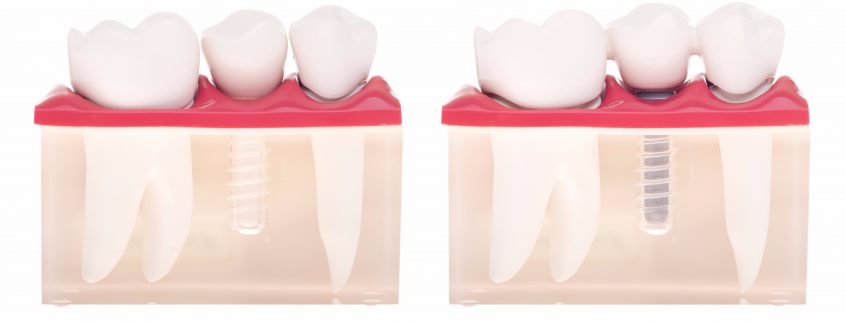Dental implants good but only in specific situations
/in Customer Service, Leadership, New Dentist, Profitability, Values Over Profits /by Kevin CoughlinDental implants have grown in use over the years and for good reason. In an ideal scenario, an implant can replace a problem tooth quite well.
But that doesn’t mean it’s the ideal procedure for all patients. There are many mitigating factors to consider before recommending an implant.
First, check the condition of the teeth next to the implant area. If they’re good, then I would recommend proceeding. If not, I would think a conventional crown and bridge treatment would be better.
Here are some common questions and answers that arise during treatment planning:
- How long will the implant last?
- Typically ten years or longer.
- Does implant surgery hurt?
- In most cases, implant surgery is less painful than having a tooth removed.
- How long does implant surgery take?
- Most of the time, placement of a single implant will take less than fifty minutes.
- Do dental implants fail?
- Yes, about 10 percent fail on the lower arch and 20 percent on the upper arch.
Many factors increase the failure rate, but the most common are smoking, diabetes that is not under control, and poor patient home care.
A dental implant cannot get a cavity but it can develop periodontal disease. Other failure factors include poor quality and quantity of bone and putting the implant into function too soon.
Can you place the dental implant immediately after you extract a tooth? Yes, but you have to be able to remove the tooth with as little trauma as possible to provide the implant with the best bone available.
If the dental extraction is completed with little to no damage to the surrounding bone, than in many cases, the implant can be placed immediately.
When discussing the cost of a dental implant with your patient, make certain they understand that at least three different fees may apply.
- The first fee is the surgical placement of the implant.
- The second is for the implant abutment.
- The third covers the placement of the implant crown.
Your patient should be aware of the total cost before treatment.
An implant is a good way to handle a problem tooth in the right circumstances. But a truly successful implant experience includes involving your patient in the entire process, from rates of success to the cost.
This is just one of the best practices I talk about when coaching other dentists. If you want to talk to me about coaching your practice, please contact me.



